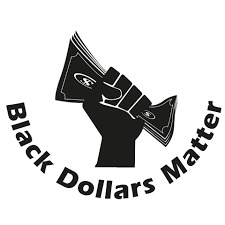Money Owed To Black People
Racial Reparations 101:
Reparations for black Americans have been a long-standing debate since the end of the slave trade. The announcement “All slaves are free” made by Gordon Granger on June 19 1865, was followed by a promise from the federal government to provide “40 acres and a mule” to all freed slaves. This promise was later reversed, leaving a great financial gap between the white and black races. The result has been a continuous clamoring for black slavery reparations.
Overview of Reparations in the U.S:
As repayment for forceful exile from their homeland, Native Americans have received billions of dollars (for different reasons) as well as lands. Also, Japanese Americans imprisoned during world war II were paid $1.5 billion. Similarly, Jews received reparations after the Holocaust through the United State’s Marshall Plan.
Black Americans are yet to receive reparations for the West African Slave Trade. This leaves them as the only race yet to be compensated through any form of reparation for the state-approved racial discrimination that was utterly brutal.
The Slavery Reparations Bill:
Over 30 years ago, Late John Conyers, a congressman, introduced the H.R. 40 bill following the passage of the Civil Liberties Act of 1988, which fostered reparations for Japanese Americans affected by the war. Sadly, the H.R. 40 did not gain proper recognition until 2019, when there was a second congress hearing by the house over the bill.
On April 14, 2021, a congressional committee voted over the H.R. 40 slavery reparations bill. For the first time in history, the vote moved the bill out of the committee level to the House floor, where it will gain broad deliberation.
Possible Reparations for Black Slavery:
Although there is no generally accepted view on what black slavery reparations should be like, the Harriet Tubman Community Investment Act has tried to use a standard that addresses sensitive areas.
The following measures will make part of a good reparations policy –
- Making payments to individuals who are descendants of Black American slaves.
- 4 or 2 years of college tuition for descendants of black American slaves
- The pardoning of student loan
- Grants for the down payment and housing revitalization
- Business grants or expansion, and
- Purchasing of property for people who can trace their origin back to the enslaved black Americans.
Conclusion:
Black slavery reparations are a long-overdue atonement, and the first positive feedback on the H.R. 40 is a step in the right direction. Although some scholars opine that no amount of money can pay for the grave injustice, recognition of fault and an apology is a good step towards healing.
More so, to make for a complete and unbiased reparation, it is necessary to include all the black people in the diaspora into whatever policy the state makes as regard black slavery reparation. This is because blacks in the diaspora can trace their origin to victims of the West African slave trade in one way or another. As such, they are equally deserving of justice.


